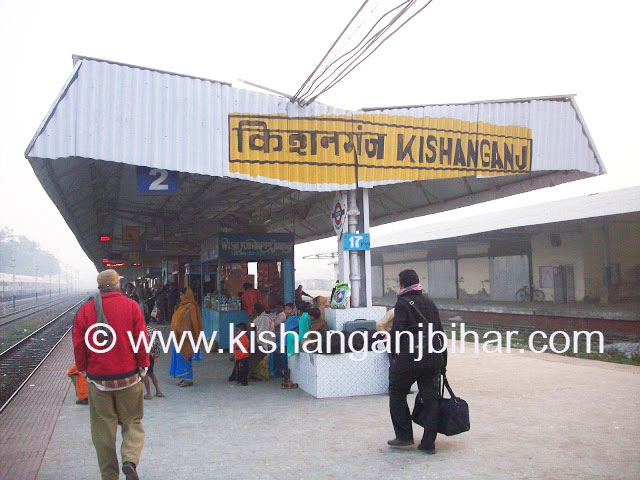The Centre’s decision to allow FDI (Foreign Direct Investment) in Retail Sector of India is the latest economic buzz in the country. The Winter Session of Parliament is being adjourned for past few days on the uproar of the opposition to revoke the decision of FDI in Retail Sector. The adjournment of parliament is causing a loss of Rs. 4 crore every day, which is the money of common people collected in the form of tax. The political upheaval over FDI in retail failed to subside despite an all-party meeting, with a united opposition, joined by UPA constituents Trinamool Congress and DMK, stalling proceedings by remaining adamant on their demand for a rollback. Along with Bharatiya Janata Party (BJP), Samajwadi Party (Uttar Pradesh), the leaders and workers of many regional political parties are agitating on the streets to roll back the FDI in Retail decision taken by the Congress led UPA government.
Retailers dealing in different items
Last Thursday (November 24, 2011), the Cabinet approved 51 percent FDI in multi- brand retail, as per this move, many global retailers like Wal-Mart, Carrefour and Tesco can open outlets in India. The Cabinet also decided to remove the 51 per cent cap on FDI in single brand format under which companies in food, lifestyle and sports business run stores. Owners of brands like Adidas, Gucci, Hermes, LVMH and Costa Coffee can have full ownership of business in India.
The traders small and big who would be mainly affected with the introduction of FDI in retail sector in India are doing agitation countrywide. As per media report shops and commercial establishments have downed their shutters to protest government’s decision in many cities of the country. Alone in the state of Maharashtra, around 35 lakh small and medium traders including the capital city of Mumbai kept their shops shut. However, the bandh called by retailers was not much effective in the states of Bihar and Jharkhand.
Now coming back to the main point, why much hue and cry against the government’s decision to introduce FDI in retail sector of the country. There had been years of debate and discussions on the risks and prudence of opening the retail industry inside India. Numerous economists have repeatedly recommended to the Government of India that legal restrictions on organized retail must be removed, and the retail industry in India must be opened to competition. For example, in an invited address to the Indian parliament in December 2010, Jagdish Bhagwati, Professor of Economics and Law at the Columbia University analysed the relationship between growth and poverty reduction, then urged the Indian parliament to extend economic reforms by freeing up of the retail sector, further liberalisation of trade in all sectors, and introducing labor market reforms. Such reforms Professor Bhagwati argued will accelerate economic growth and make a sustainable difference in the life of India's poorest.
On November 24, 2011, the government of India announced following related to launch of Foreign Direct Investment (FDI) in Retail Sector of India.
:- India will allow foreign groups to own up to 51% in "multi-brand retailers", as supermarkets are known in India, in the most radical pro-liberalisation reform passed by an Indian cabinet in years
:- Single brand retailers, such as Apple and Ikea, can own 100 percent of their Indian stores, up from the previous cap of 51%
:- Both multi-brand and single brand stores in India will have to source nearly a third of their goods from small and medium-sized Indian suppliers
:- All multi-brand and single brand stores in India must confine their operations to 53-odd cities with a population over one million, out of some 7935 towns and cities in India. It is expected that these stores will now have full access to over 200 million urban consumers in India
:- Single brand retailers must have a minimum investment of US$100 million with at least half of the amount invested in back end infrastructure, including cold chains, refrigeration, transportation, packing, sorting and processing to considerably reduce the post harvest losses and bring remunerative prices to farmers
:- The opening of retail competition will be within India's federal structure of government. In other words, the policy is an enabling legal framework for India. The states of India have the prerogative to accept it and implement it, or they can decide to not implement it if they so choose. Actual implementation of policy will be within the parameters of state laws and regulations
The opening of retail industry to global competition is expected to spur a retail rush to India. It has the potential to transform not only the retailing landscape but also the nation's ailing infrastructure. Currently, retailing is dominated by millions of mom-and-pop stores, and it lacks much modern product sourcing management, logistics, supply-chain management, including cold storage. One report estimates the 2011 Indian retail market as generating sales of about $470 billion a year, of which a miniscule $27 billion comes from organized retail such as supermarkets, chain stores with centralized operations and shops in malls. The opening of retail industry to free market competition is expected to enable rapid growth in retail sector of Indian economy.
A Wall Street Journal article claims that fresh investments in Indian organized retail will generate 10 million new jobs between 2012-2014, and about five to six million of them in logistics alone; even though the retail market is being opened to just 53 cities out of about 8000 towns and cities in India. Simply, the future of retail sector with FDI is looking bright in India. The world renowned retail chain are equipped with latest technologies, equipments and efficient staff (man power), which altogether brings the price of products lower and you can buy the items at a cheap price. As these leading retail chains focuses on purchasing the items directly from producers or farmers, so no scope remains from whole sellers or small retailers. Hence, the prices of the items automatically come down because they directly.
The FDI in retail sector would badly affect the whole-sellers and retail shopkeepers, whose involvement would be zero in bringing the things to common purchasers. On the other hand, the buyers would be king as they can purchase the items at a cheap rate that would save more to their pockets. As per the proposal of introducing FDI in retail sector, the government will allow to open the retail markets only in the big cities with a minimum population of 1 million (10 lakh). However, the products especially vegetables and other food items would be purchased from neighbouring villages that would again affect the small shop keepers and store owners including whole sellers.
Affect of FDI in perspective of Bihar
Bihar Chief Minister Nitish Kumar has said that he wouldn't allow Foreign Direct Investment (FDI) in the retail sector in the state. Kumar said the Congress Party and UPA Government should revoke the decision as it didn't have a majority on the issue in parliament. It should not be implemented in the country also. What is the need to frame this policy? Foreign Direct Investment is retail sector is not at all a good move for economically deprived states like Bihar where a major portion of the population is linked with retail sector somehow directly or directly. In fact, FDI in Bihar would increase the percentage unemployment and it would badly affect the economy of the state which is mainly retail based. Retailers running business in state capital Patna and other major towns namely, Muzaffarpur, Darbhanga, Gaya, Bhagalpur and Katihar would be badly affected. The state is lagging behind in the field of education and there are insufficient numbers of small and big industries. The centre should have a relook on the proposal of allowing FDI retail in sector of India especially keeping in mind the status of underdeveloped states like Bihar, West Bengal and Orissa.
















FDI in Retail Industry: Why it is required in India?
ReplyDeleteI am in close interaction with Retails Industry for Last 3 years (From small shopkeeper to big retail chain of supermarket). I support the FDI in India. Many of you have many objections on my support for FDI in India. Please read the below points.
1. Retail Market in is most unorganized sector at every level. Most of the black money is involved in this sector. FDI will be a step towards organizing this sector. Hence Black Money will be controlled.
2. The farmers will get direct benefit due to direct purchase
3. This step will also organize the farming. The present farming in India is not organized. Especially if we talk about Seemanchal or Bihar or West Bengal poor farmers don’t know how to plan the farming to make it profitable.
4. Those customers who purchase from Shopping Mall have no effect on small shops. Reliance retail was burnt in many places, but it has no effect on small retailers.
5. I visited village Haats. The price is same as in Big Bazaar. If farmers get free from selling task, they will focus on farming. There is huge human resource required in many industries. Complacency will be reduced.
6. Exposure to retail business will open the doors for export and quality farming.
7. India will become developed and life style will be improved.
8. Foreign investors will be motivated to invest in India.
This is a global world; we cannot restrict ourselves in the boundaries of country.
My Research work for last 2 years: I have worked with Nokia India Pvt Ltd for project which can automate the complete supply chain management of any retail and distribution network. I also worked for retail domain software. I met all kind of retail stores. In present system there is huge flaw. There is wastage of material; most of money is black until you pay by credit/debit card. The price shoots up from farm to kitchen. If Govt applies mandatory tax on retail industry, the total tax earned by Govt will be many times higher. The life of the people in this sector is very poor. This is will an initiative to organize the retail sector which is required.
Thanks Kaifee Anwer for putting your expert comment and explaining the less known facts of FDI in Retail Sector. Hope this will help people to understand the pros and cons of FDI with your detailed explanation...As per your explanation the FDI in retail sector is going to help the country at a great extent. Thanks again...........
ReplyDelete